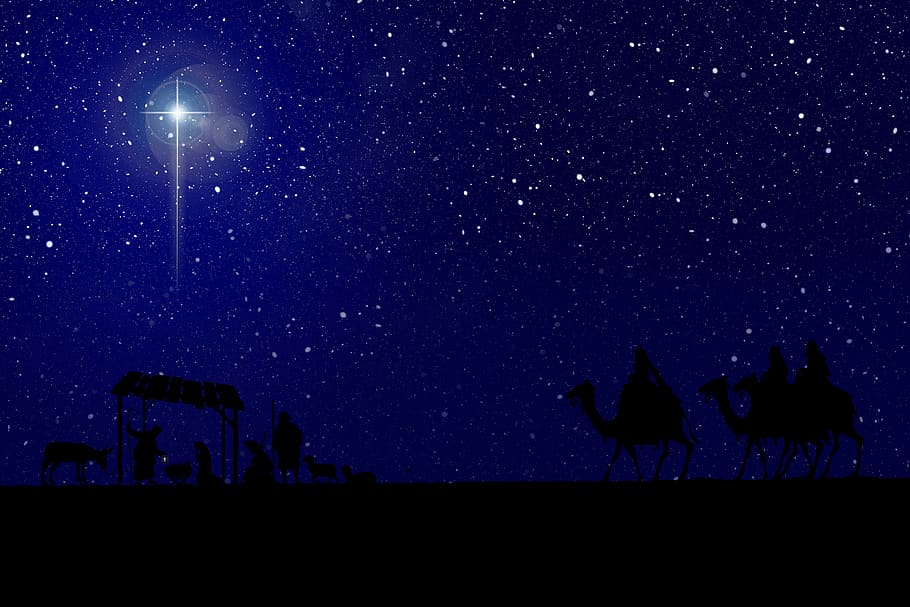In Christian thought and practice, Christmas is about an innocent baby born into poverty in a livestock manger. He is also identified as the prince of peace and is revered as the son of God by wise men from fabled eastern cultures that had created and practiced their forms of high civilization for several thousands of years before the Greeks lived in poleis or city-states and before the Romans at the end of their republic imposed their own pax Romana on the world.
The Roman way, not so different from the Greek way used first by the fifth-century Athenians and three generations later by Alexander the Great, imposed order on the world by using extreme violence. The historian Tacitus summed it up by saying that the Romans used their military power to destroy their enemies, metaphorically creating a desert and calling it peace.
We are in the habit of doing the same thing with our air power: in Germany and Japan in 1944-45 (2.15 million tons of bombs and 2 atomic bombs), in Vietnam 1964-1973 (7.6 million tons of bombs) and now in Iraq, Afghanistan and Syria (using the so-called “Afghan Model” aimed at eradicating enemy resistance).
These ancient and modern tactics are what the infant in Bethlehem asleep in the hay would later reject and replace with his own beautiful message of caring for the poor and homeless, turning the other cheek when offended, reconciling with our enemies, and loving others as we love ourselves. Watching the news might make us conclude that we must not love ourselves very much, if this is how we treat others and the world around us.
The Earth’s lungs are on fire as great swaths of the Amazonian rainforest have been burned in the name of economic development. As of 2018, 815 million people in the world live in hunger due to poverty, armed conflicts, political instability, flawed food and agricultural policies and climate changes.
Closer to home, Texas Hunger Initiative reports that 158,270 Travis County residents (16%, one out of every six people) are ‘food insecure.’ In the shadows of Austin’s luxury high-rises, low unemployment and high-end good-life consumerism, stretches of Riverside Drive are lined with homeless encampments. Despite trickle-down from our sustained economic development, many people living in greater Austin are only marginally better off now than those living around my home town of Cleveland, Ohio, a high-poverty poster child. Cuyahoga County has a food-insecurity rate of 18.7%.
If you think of how far away we are now from the kind of society Martin Luther King, John F. Kennedy and Lyndon Baines Johnson inspired Americans in the 60’s to envision and then to try to achieve, the holiday season of joy can quickly produce melancholy and sadness.
I know that to many readers referring to those three figures is like waving red flags at bulls. All three were flawed as we all are. Their shortcomings, given their prominence and their power, had some bad consequences for our country.
Nonetheless, King had the courage to call the United States the “greatest purveyor of violence in the world” and to declare that if he could live in any of the great ages of mankind, he would be happy “to live just a few years in the second half of the twentieth century.” He acknowledged that he was making a strange choice “because the world is all messed up. The nation is sick. Trouble is in the land. Confusion all around.” Why did he want to live in such a time? Because “only when it is dark enough, can you see the stars.” He also thought that since social, economic and political problems were so dire then, men could no longer just talk about them, “survival demands that we grapple with them.”
Bob Dylan sang first in 1997 and still sings that “it’s not dark yet, but it’s getting there.” To me, it seems that “there” is here right now. Perhaps, in keeping with the season, we should listen to Dylan’s Jesus-phase song “When You Gonna Wake Up?” and look up again to MLK’s stars and reach for them before it’s too late.
Tom Palaima is Armstrong Centennial Professor of Classics at the University of Texas at Austin.
